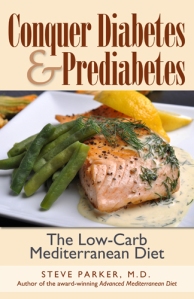Isn’t it just ’cause we eat too much and exercise too little due to lack of discipline and willpower?
Science writer David Berreby has an article at Aeon suggesting it’s way more complicated than that. Even if we do eat too much, why do we? Some quotes:
And so we appear to have a public consensus that excess body weight (defined as a Body Mass Index of 25 or above) and obesity (BMI of 30 or above) are consequences of individual choice. It is undoubtedly true that societies are spending vast amounts of time and money on this idea. It is also true that the masters of the universe in business and government seem attracted to it, perhaps because stern self-discipline is how many of them attained their status. What we don’t know is whether the theory is actually correct.
***
As Richard L Atkinson, Emeritus Professor of Medicine and Nutritional Sciences at the University of Wisconsin and editor of the International Journal of Obesity, put it in 2005: ‘The previous belief of many lay people and health professionals that obesity is simply the result of a lack of willpower and an inability to discipline eating habits is no longer defensible.’
Like liver, skeletal muscle, and brain, our body fat is a tissue that is carefully regulated by genes, hormones, enzymes, etc., which I’ll lump together as “metabolism.” Regulatory metabolic processes for liver, muscle, and brain will be different from each other and from fat tissue. Some processes aid fat storage, others lead to fat breakdown and weight loss.
Mr. Berreby discusses various trendy factors that may directly alter fat tissue metabolic processes, leading to overweight and obesity. Here’s his list:
- lack of sleep
- viruses (e.g., Ad-36)
- stress
- bacteria (e.g., Methanobrevibacter smithii in the large intestine)
- industrial chemical contaminants (e.g., BPA, heavy metals, detergents, sunscreen, fire retardants, cosmetics)
- electrification (e.g., too much light exposure, especially at night)
- heat and air conditioning
- undernutrition (“starvation”) during pregnancy: the children hatched are more likely to be overweight or obese as adults
- intergenerational influence (epigenetic)




Pingback: Has Eating-Out Contributed to Overweight and Obesity? | Advanced Mediterranean Life
Pingback: Does Dining Out Cause Obesity? | Paleo Diabetic
Pingback: Is Dining Out Making Us Fat? | Paleo Diabetic